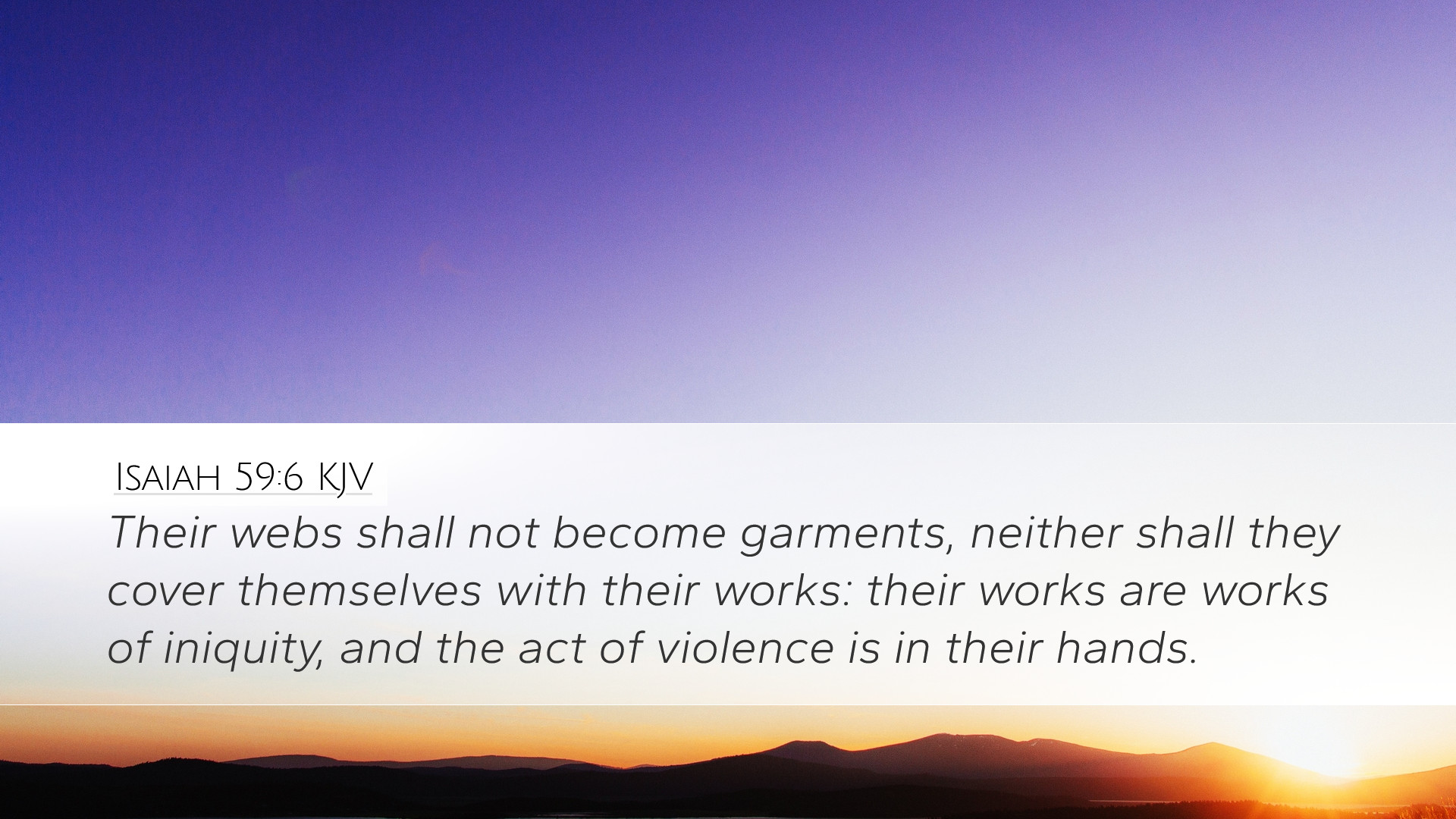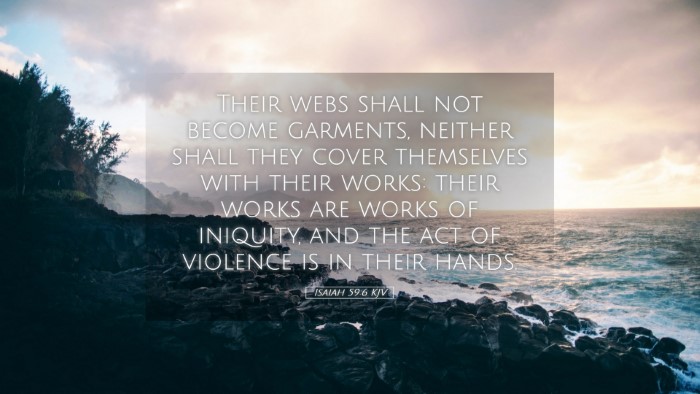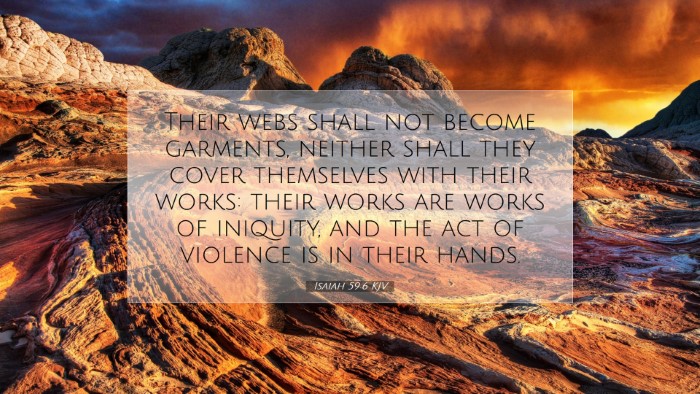Commentary on Isaiah 59:6
Text of the Verse: "Their webs shall not become garments, neither shall they cover themselves with their works: their works are works of iniquity, and the act of violence is in their hands." (Isaiah 59:6)
Introduction
The passage from Isaiah 59:6 offers a profound commentary on the spiritual condition of Israel during the Prophet Isaiah's time. It underscores the futility of human effort outside of divine righteousness and highlights the serious consequences of sin. This commentary synthesizes insights from several public domain biblical scholars, providing a robust examination of the text for pastors, theologians, and students of the Bible.
Contextual Analysis
According to Matthew Henry, the broader context of Isaiah 59 speaks to the separation between God and Israel due to their iniquities. The chapter begins with an explanation of why God is not intervening or delivering His people, emphasizing that their sin has created barriers. Henry notes that Isaiah addresses both the personal and societal dimensions of sin—indicating that the people's collective wrongdoing has provoked God's silence.
Human Efforts and Futility
Albert Barnes elaborates on the metaphor of "webs" in this verse. He argues that these "webs" symbolize the deceptive schemes or false assurances that the people have woven in their efforts to seek protection or righteousness apart from God. Just like a spider's web is inadequate for providing true shelter or safety, so are their actions, which cannot cover their sinfulness. Barnes asserts that despite their attempts at concealing their iniquities, the reality remains unchanged: their works are wholly insufficient to justify them before God.
The Nature of Their Works
Continuing this thematic exploration, Adam Clarke emphasizes the description of their works as "works of iniquity." Clarke points out that the term "iniquity" signifies not merely minor transgressions but profound moral failure and rebellion against God’s commands. He calls attention to how the prophet highlights the active nature of their sin—“the act of violence is in their hands”—suggesting that their actions are not passive or inadvertent but deliberate and aggressive, reflecting a corrupted heart.
Divine Judgment and Human Accountability
The message conveyed in Isaiah 59:6 also serves as a warning regarding divine judgment. According to Henry, although Israel may perceive themselves as a righteous people, their lack of true righteousness makes them vulnerable to God’s judgment. This misinterpretation of their condition illustrates a common human tendency: to equate outward forms of religion with true spirituality. The verse thus challenges readers to reflect critically on their own spiritual lives and the authenticity of their relationship with God.
Implications for Contemporary Believers
There are significant lessons that contemporary believers can derive from this verse. Barnes underscores the importance of genuine faith and the danger of self-deception. The historical context warns against reliance on spiritual practices that do not stem from an authentic heart transformed by God. This is a critical reminder for churches today about the necessity of living out the principles of love, justice, and mercy rather than merely adhering to rituals devoid of spiritual significance.
Conclusion
Isaiah 59:6 vividly portrays the consequences of attempting to cover sin with human efforts, serving as a compelling reminder of our need for divine grace. In response to sin's pervasive nature, God's call for genuine repentance and authentic righteousness comes through the prophetic voice of Isaiah. As Clarke suggests, true transformation begins when we acknowledge our iniquities and turn back to God, allowing His righteousness to clothe us. This passage ultimately encourages more profound introspection and a renewed commitment to live in alignment with God's will, impacting our witness in a world yearning for truth and hope.
Further Reflection
As scholars, pastors, and students engage with Isaiah 59:6, let us consider the broader implications of our works, the motives behind them, and how they align with the righteous principles of God’s kingdom. May we seek not just to avoid iniquity but to pursue holiness, embodying the message of Christ in our lives.


